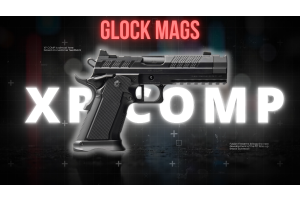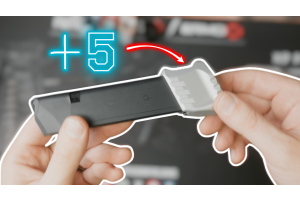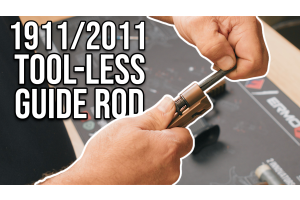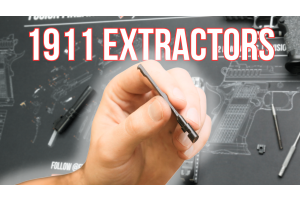Understanding Modern Ammunition: From Full Metal Jacket to Hollow Points
0%
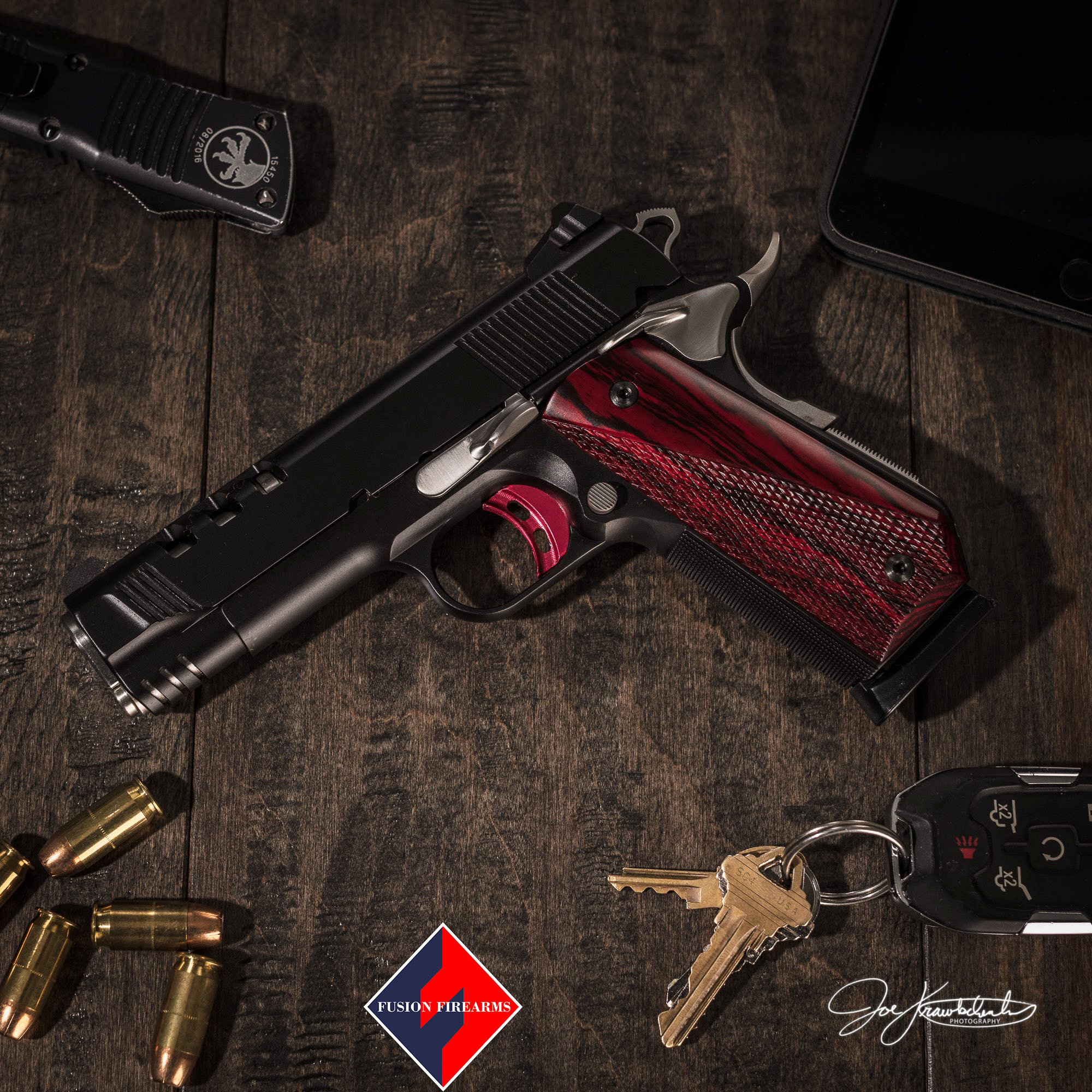
For many newcomers to the world of firearms, the terminology can seem intricate and often overwhelming. One term frequently mentioned, especially among those purchasing ammunition for the first time, is "Full Metal Jacket" or FMJ. If you're a first-time gun buyer, understanding this term is pivotal to making informed decisions regarding your ammunition choices.
Key Points:
-
FMJ Bullets: Characterized by a soft lead core encased in a harder metal jacket, often used for training and target practice due to cost-effectiveness.
-
Hollow Point Bullets: Designed to expand on impact, maximizing damage in a target; common for self-defense but not suitable for all situations.
-
Bullet Selection: FMJ is favored for consistent accuracy and affordability, while JHP offers superior stopping power in self-defense scenarios.
-
Accuracy: For target shooting, FMJ is often preferred for its predictable trajectory, while JHP is selected for its impact efficiency.
-
Common Uses for FMJ: Includes target practice, military training, plinking, and stockpiling.
-
Bullet Purpose: FMJ bullets ensure clean passage through a target without significant expansion, while JHP bullets are designed to expand and transfer more energy to a target upon impact.
This brief overview encapsulates the main discussion points about FMJ and hollow point bullets, helping readers understand their characteristics, uses, and differences.
What are full metal jacket FMJ bullets?
Full Metal Jacket (FMJ) bullets are a type of ammunition where the lead core of the bullet is entirely encased in a shell of harder metal, typically copper or a similar alloy. This design ensures that the lead core is protected, resulting in reduced barrel fouling and consistent ballistics. Unlike hollow points which expand upon impact, FMJ bullets maintain their shape, making them particularly favored for target shooting. However, their potential to overpenetrate targets makes them less ideal for self-defense scenarios.
Advantages of Full Metal Jacket Bullets
Full Metal Jacket (FMJ) bullets are projectiles designed for bullets where the softer lead core is completely encased in a shell of harder metal, often copper or a similar alloy. This 'jacketing' process offers several advantages:
-
Reduction in Barrel Fouling: Lead, when fired, has a propensity to leave deposits or 'fouling' in the barrel. Over time, these deposits can accumulate and may affect a firearm's accuracy. The metal jacket prevents this by creating a barrier between the lead and the barrel, ensuring cleaner shooting.
-
Consistent Ballistics: FMJ bullets offer consistent shapes and weight distributions. This uniformity can lead to more predictable trajectories, making them particularly popular for target shooting.
-
Overpenetration: While FMJ bullets are revered for their consistency, it's also worth noting that they can overpenetrate targets. Unlike other bullet types, like hollow points, FMJs do not expand upon impact. This means they can pass through an intended target and potentially strike an unintended one. For this reason, they're not typically recommended for self-defense scenarios.
FMJ Advantages: Full Metal Jacket Bullet vs. Regular Bullet
Full Metal Jacket (FMJ) bullets are encased in a metal shell, while regular bullets might have exposed lead. Here are the advantages of FMJs:
-
Consistency: FMJs provide stable flight paths, enhancing accuracy.
-
Less Barrel Wear: They leave less residue, resulting in less frequent cleaning and extended barrel life.
-
Reliability: Designed for smoother feeding in semi-automatic firearms.
-
Affordability: Typically cheaper due to mass production.
-
Cleaner Target Impact: FMJs don't expand upon hitting targets, ensuring a neat entry.
-
Range Usage: FMJs are preferred in many shooting ranges to minimize lead pollution.
-
Global Acceptance: Compliant with certain international warfare regulations, like the Hague Convention.
However, the potential for overpenetration with FMJs can make them less suitable for self-defense in some situations.
How FMJ bullets work, and the pros and cons
Full Metal Jackets or (FMJ) bullets have been a mainstay in the ammunition world due to their distinct design and purpose. To understand the FMJ bullet, one needs to delve into its operation and assess the benefits and drawbacks associated with its use.
How FMJ Bullets Work:
-
Design: FMJ bullets consist of a soft lead core fully encased in a harder metal, commonly copper. This jacket prevents the lead from depositing in the gun barrel as the bullet is fired.
-
Impact Behavior: Unlike expanding bullets, FMJ bullets do not expand upon impact. Instead, they retain their shape, allowing for deeper penetration.
Pros of FMJ Bullets:
-
Consistent Performance: FMJ bullets provide a steady trajectory, making them reliable for target shooting.
-
Less Barrel Fouling: The metal jacket minimizes lead residue in the barrel, extending intervals between cleanings.
-
Cost-Effective: FMJ ammunition is typically less expensive than specialty bullets, making it a favorite for practice sessions.
-
Regulatory Acceptance: Many indoor shooting ranges prefer or require FMJ ammunition because it poses less risk of ricochet and back-splash from bullet fragmentation.
Cons of FMJ Bullets:
-
Over-Penetration: Due to their non-expanding nature, FMJ bullets can pass through a target and pose a threat to anything behind it. This makes them less ideal for self-defense situations where collateral damage is a concern.
-
Less Stopping Power: Since they don't expand, FMJ bullets might not incapacitate a threat as effectively as expanding bullets, like hollow points.
In summary, while FMJ bullets are valuable for certain applications, particularly target practice, understanding their mechanics and associated pros and cons is crucial for gun owners and enthusiasts. Proper ammunition choice is vital for both safety and desired shooting outcomes.
4614961392
What is a hollow point, hollow tip, or JHP bullet?
A hollow point, often referred to as a hollow tip or JHP (Jacketed Hollow Point), is a type of bullet designed for maximum impact. Unlike the FMJ which remains largely intact upon collision, the hollow point bullet expands upon entering a target. The center of its tip is hollowed out, allowing the bullet to "mushroom" or spread out upon impact. This design achieves several purposes:
-
Enhanced Stopping Power: By expanding within the target, the hollow point creates a larger wound channel, potentially incapacitating a threat more effectively.
-
Reduced Risk of Over-Penetration: The expansion ensures the bullet deposits most of its energy in the target, reducing the chance of it exiting and posing a risk to others.
However, it's worth noting that while hollow points offer these advantages, they might not perform as consistently in penetrating barriers like clothing or glass. Consequently, understanding the specific needs and situations is essential when considering hollow point ammunition.
Which Type of Bullet Should You Use?
Choosing the right bullet type is vital depending on the intended purpose, personal preferences, and specific scenarios:
-
For Target Shooting and Training: Full Metal Jacket (FMJ) bullets are preferred. They are generally more affordable, feed reliably in most firearms, and are less likely to cause excessive barrel wear.
-
For Personal Defense: Hollow Point (HP) or Jacketed Hollow Point (JHP) bullets are a popular choice. Their design allows for maximum impact on a target, transferring energy effectively and reducing the risk of over-penetration. This is crucial to avoid potential harm to innocent bystanders or other unintended targets.
-
For Hunting: The choice between FMJ and HP largely depends on the game being hunted. Hollow points are often chosen for medium to large game due to their expansive properties which can deliver a humane kill. For smaller game or varmint hunting, FMJ might be used to avoid excessive damage.
-
Considering Penetration Through Barriers: If there's a chance you might need to shoot through barriers, like clothing or glass, you may want a bullet that maintains its trajectory post-penetration. In such scenarios, certain specialized rounds may be more effective than standard FMJs or JHPs.
Lastly, local laws and regulations may influence bullet choice. Some regions have restrictions on specific bullet types, especially for hunting. It's always essential to research local guidelines before purchasing or using ammunition. Whatever the choice, practicing regularly with your selected bullet type is crucial to understand its behavior and ensure proficiency.
Accuracy and target shooting: Which is best, FMJ or JHP?
For target shooting, FMJ bullets are often the preferred choice. They provide consistent accuracy, are typically more affordable, and produce less barrel wear. While JHP bullets can also be accurate, they are primarily designed for self-defense with expansion in mind. In terms of cost-effectiveness and consistent performance at the range, FMJ tends to be the favored option.
What are the uses for each type of ammunition?
FMJ ammunition is primarily used for target shooting, training, and military applications due to its consistent performance and affordability. JHP ammunition, with its expanding characteristics, is mainly used for self-defense and law enforcement, offering greater stopping power against threats.
Frequently Asked Questions
Common Uses for FMJ Ammo
-
Target Practice: Due to its relatively lower cost compared to specialized ammunition, FMJ is a popular choice for routine target practice and shooting range sessions.
-
Training: Military and law enforcement often use FMJ rounds for training exercises because of its consistent performance and cost-effectiveness.
-
Competitions: Shooting sports and competitions that don't require specialized ammo types will often see participants using FMJ for its reliability.
-
Plinking: Casual shooting or "plinking" at non-living targets like cans or bottles is another common use for FMJ ammo.
-
Military Use: FMJ rounds are standard issue for many military forces worldwide due to conventions like the Hague Declaration of 1899, which prohibits the use of expanding bullets in international warfare.
Why are full metal jacket bullets illegal?
FMJ bullets are not universally illegal; however, some jurisdictions restrict their use in hunting because they can over-penetrate targets and pose a risk to others.
What is so special about Full Metal Jacket?
A Full Metal Jacket bullet is designed with a soft core, often lead, encased in a shell of harder metal. This design aids in smoother feeding into the chamber and reduces barrel wear.
Is Full Metal Jacket a top 100 movie?
"Full Metal Jacket" is considered a cinematic classic by many critics. Its ranking on "top 100" lists varies, but it is widely acknowledged for its portrayal of the Vietnam War and the psychological impact of combat.
Is Full Metal Jacket about PTSD?
While "Full Metal Jacket" addresses the brutality of war and its psychological effects, it is not solely focused on PTSD. The film delves into various aspects of military life and the dehumanizing effects of war.
What is a jacket in a bullet?
A jacket refers to the outer casing, typically made of copper or another metal, that covers the core of the bullet.
Is jacketed the same as FMJ?
All FMJ bullets are jacketed, but not all jacketed bullets are FMJ. There are other types of jacketed bullets, such as hollow points or soft points.
Are FMJ rounds bad for your gun?
No, FMJ rounds are not inherently bad for your gun. In fact, they are often used for target practice because they cause less barrel wear compared to exposed lead bullets.
What is the purpose of a full metal jacket bullet?
FMJ bullets are primarily designed for better feeding in semi-automatic firearms and to reduce barrel wear, as the jacket prevents soft lead from making direct contact with the barrel.
What is the difference between a full metal jacket and a normal bullet?
The main difference is the hard metal jacket covering the core of the FMJ bullet. In contrast, a "normal" or traditional bullet might expose the softer lead core at its tip.
Is Full Metal Jacket ammo better?
"Better" is subjective. FMJ is preferable for consistent target practice and military use, while other bullet types, like hollow points, might be chosen for self-defense.





